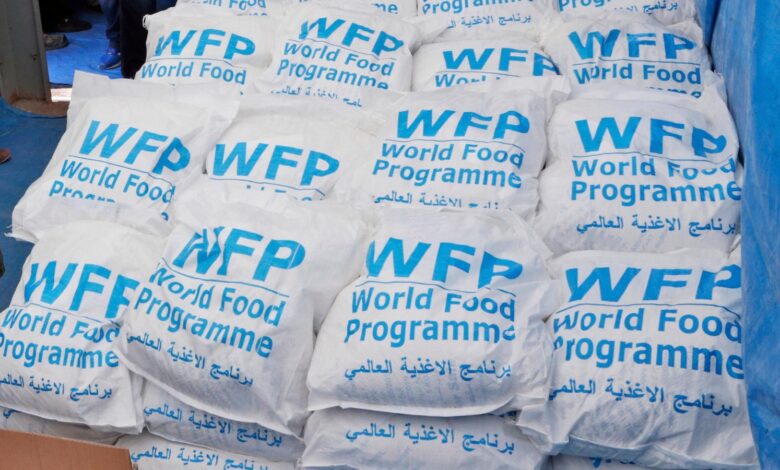World Food Program, other UN aid agencies slash jobs amid US funding cuts: Officials

CAIRO — The World Food Program and the United Nations refugee agency are facing significant job cuts due to reductions in funding, primarily from the United States, officials revealed to The Associated Press on Tuesday. These cuts are expected to have a severe impact on aid programs worldwide.
The World Food Program, a United Nations entity, is preparing to reduce its workforce by up to 30%. The head of the U.N. High Commissioner for Refugees announced plans to downsize headquarters and regional offices to achieve a 30% cost reduction, as well as a 50% reduction in senior-level positions.
Internal memos obtained by The AP and confirmed by two U.N. officials, who spoke on the condition of anonymity, outlined these personnel decisions.
A WFP official described these cuts as the most substantial the agency has seen in the last 25 years, noting that operations may either cease or be scaled down as a result.
The reduction in funding for U.N. agencies reflects the consequences of President Donald Trump’s decision to diminish the United States’ role as the world’s largest aid donor. This shift in priorities has empowered individuals like Elon Musk and his Department of Government Efficiency to restructure the federal government, with a focus on reducing foreign assistance. Even before these changes, many donor nations had already decreased humanitarian spending, leading to challenges for U.N. agencies in meeting their funding targets.
U.N. spokesperson Stephane Dujarric expressed Secretary-General Antonio Guterres’ deep concern over the substantial funding cuts. Dujarric emphasized the difficult decisions that the heads of humanitarian agencies are forced to make due to budget constraints, which have immediate and potentially fatal consequences for the world’s most vulnerable populations.
The World Food Program, the largest humanitarian organization globally, received 46% of its funding from the United States in 2024.
In response to the planned cuts, the organization stated that it would prioritize essential programs that provide critical food assistance to the 343 million people facing hunger and starvation, given the challenging donor landscape.
The internal memo indicated that personnel reductions would impact all regions, departments, and levels within the agency. It suggested the possibility of further downsizing and mentioned a review of the agency’s program portfolio.
The U.N.’s primary refugee agency provides assistance to approximately 43.7 million refugees worldwide, as well as the 122 million individuals displaced by conflicts and natural disasters.
The agency announced that it would need to significantly reduce its workforce, including downsizing headquarters and regional offices. While some country offices will be closed, specific details on staff reductions were not immediately provided.
The funding shortfall is already having a devastating impact on refugees’ lives, according to the agency. Programs offering food, water, medicine, emergency shelter, and other services will either be reduced or discontinued.
For example, reduced funding will limit access to clean water for over half a million displaced individuals in Sudan, increasing the risk of disease outbreaks like cholera. Additionally, efforts to accommodate and educate Sudanese refugees in South Sudan, Chad, and Uganda will be hindered, potentially driving more refugees to attempt perilous journeys to Europe due to inadequate facilities in host countries.
In an email to staff on April 23, the head of UNHCR stated that headquarters and regional offices would be downsized to achieve a 30% cost reduction, with a 50% reduction in senior-level positions.
These cuts will impact the agency’s operations, organization size, and, most importantly, the individuals it aims to protect. The agency emphasized the importance of prioritizing the well-being and safety of refugees, displaced persons, and stateless individuals.
The UNHCR office in Lebanon, home to approximately 1 million Syrian refugees, is only 15% funded, according to spokesperson Lisa Abou Khaled.
Due to funding constraints, the agency had to halt cash assistance for 347,000 refugees this month, reduced from the previous assistance provided to two-thirds of that number. Remaining funding for 200,000 refugees will only last through June. Primary health services for around 40,000 refugees have also been discontinued.
Last month, the U.N. agency reported a 30% decrease in funding for the year, primarily due to cuts from the United States. As a result, programs affecting 6,000 personnel have been terminated, and there has been a 20% reduction in headquarters staff.
Associated Press writers Sarah El Deeb in Beirut, Lee Keath in Cairo, and Farnoush Amiri at the United Nations contributed to this report.





